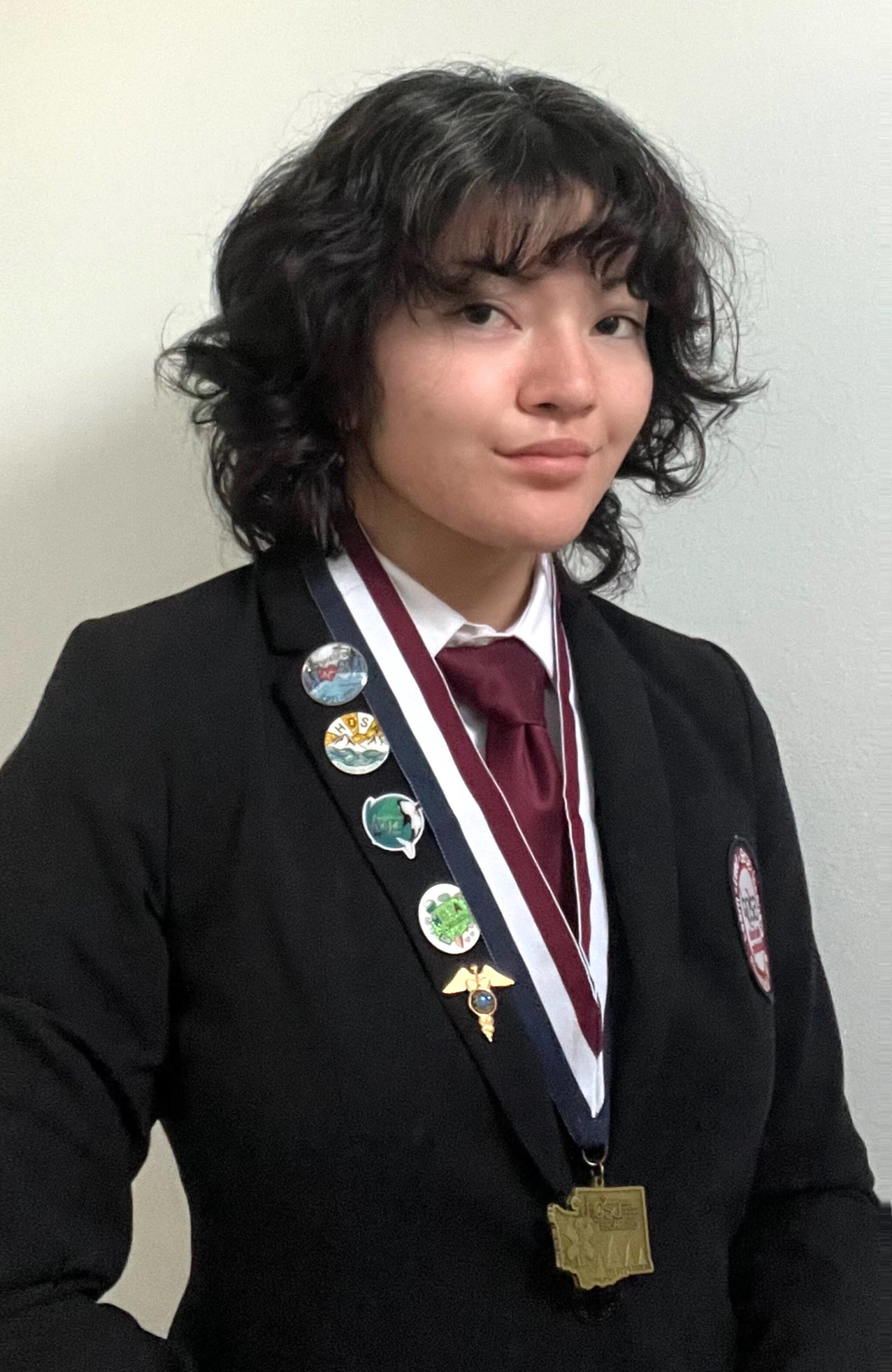Some high school students dream of going to medical school to help people and save lives, but one Bainbridge High School student wants to become a doctor to solve crimes.
Recent graduate Reina Shirley is one step closer to fulfilling her dream of becoming a medical examiner when she placed first in the Cultural Diversities & Disparities in Healthcare category at the Washington State Health Occupations Students of America Leadership Conference.
Students competed in more than 20 health science categories ranging from healthy lifestyles, to pharmacology and forensic science during the three-day virtual conference.
Shirley recently graduated and is headed to the University of Washington in the fall, hoping to be a biology major to prepare for medical school. She wants to become a medical examiner because she wants to help people and stimulate her love of science.
“It’s interesting to me the way that criminology and the justice system overlap with medicine, and I thought it would be a really unique way to help people. Being a medical examiner is classically associated with the importance of having the knowledge needed to have a wide understanding of where people come from,” Shirley said, adding that understanding a deceased person’s cultural background can aid in discovering how they died. “It’s insightful to know, and it’s fascinating.”
In her research, she learned about cultural diversities and disparities in different U.S. populations, what they are at risk for, and what kind of care they are not getting for various reasons. She also learned about disparities worldwide and how healthcare ties in with different religious, ethnic and cultural beliefs. Shirley explained her research showed how a healthcare professional can reach cultural competencies to understand and respect a patient’s healthcare beliefs, needs and choices.
“I think a lot of these disparities could be solved by teaching professionals about cultural diversities. It’s an emerging aspect of healthcare,” she said, adding that it is important to understand the healthcare needs of immigrants who have different religious and cultural beliefs.
Shirley said many religions prohibit or don’t incorporate modern health care, but still practice medicine, and heal and treat people. “It just isn’t what we’re used to seeing. Even if it isn’t backed up by modern science, a lot of it is still effective, and it’s been effective for thousands of years.”
Shirley gave the example of the Evil Eye, which Western doctors may not understand. “It’s something that is found in cultures across the world. In Hispanic cultures, it’s seen as a source of illness, evil and negativity. It’s like taking ill wishings literally.”
One of the issues with these cultural beliefs is they don’t align with modern medicine, and patients say their concerns aren’t taken seriously.
As a first-generation Japanese-American, Shirley has first-hand experience with traditional medicinal remedies used at home. She recently was isolated at home with COVID-19 symptoms and her mother, Kazumi, who is from Sapporo, was feeding her a traditional Japanese porridge made from overcooked rice that is fermented and easy to digest. Her mother also gave her a haramaki, a garment that covers the stomach and keeps it warm to aid in healing.
“There is more of a gray line between Japanese medicine and modern medicine because there is more trust and the beliefs kind of align,” said Shirley, who is a lab intern with Bainbridge-based medical research company Revalve Solutions, which is designing prosthetic heart valves.


